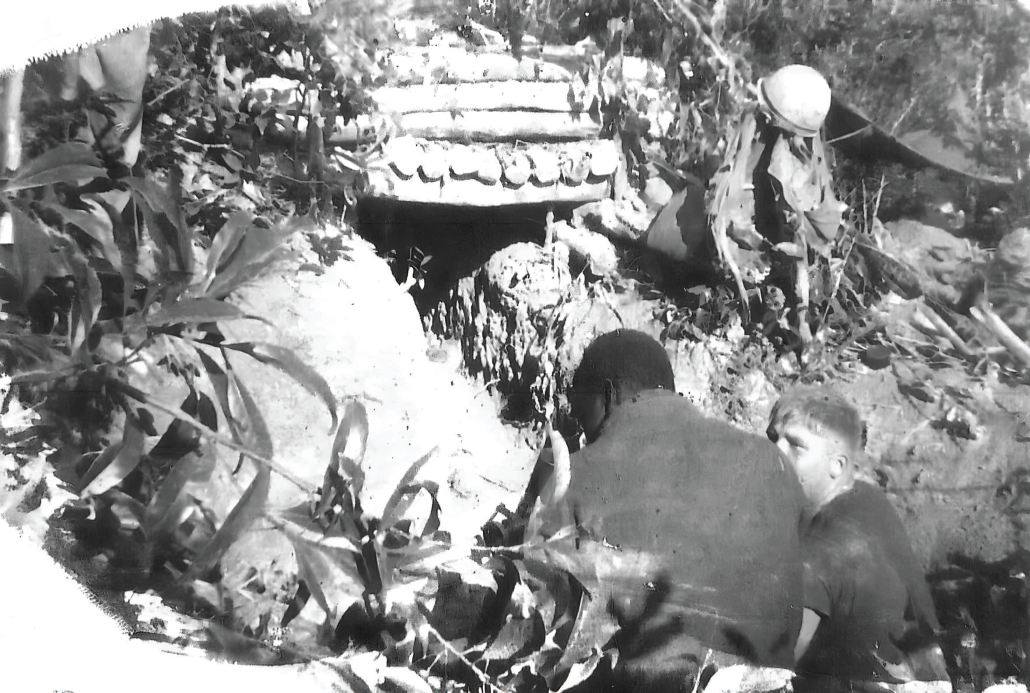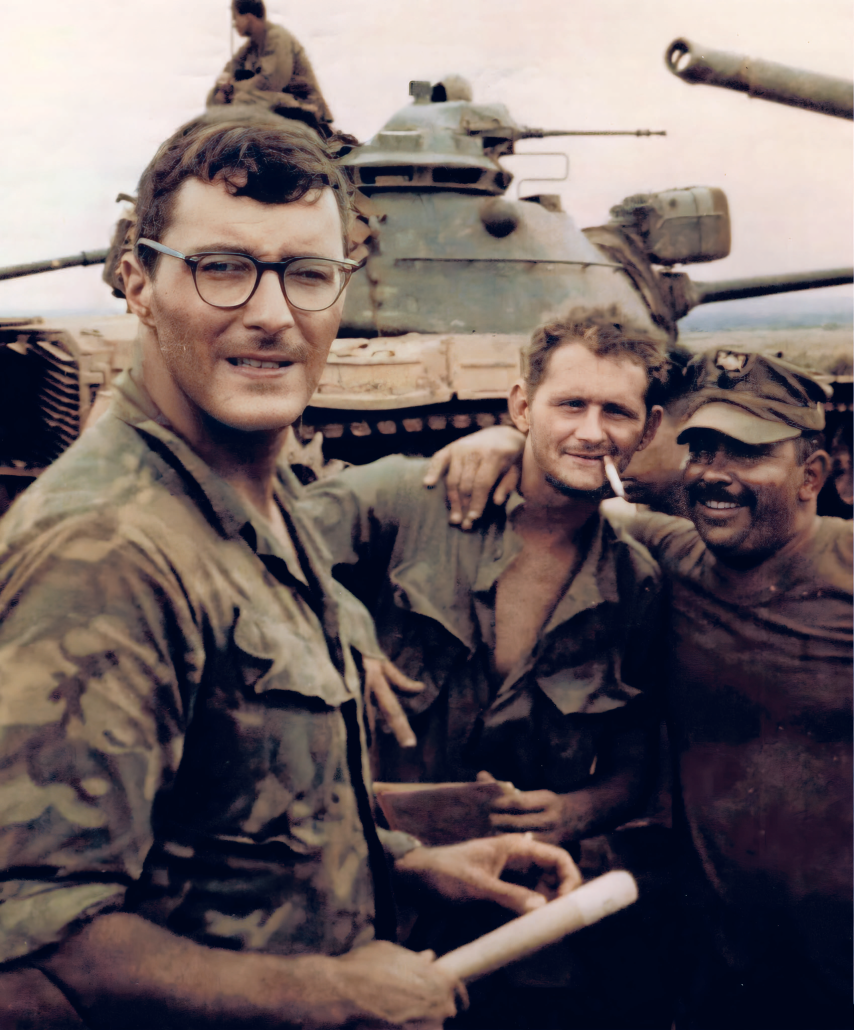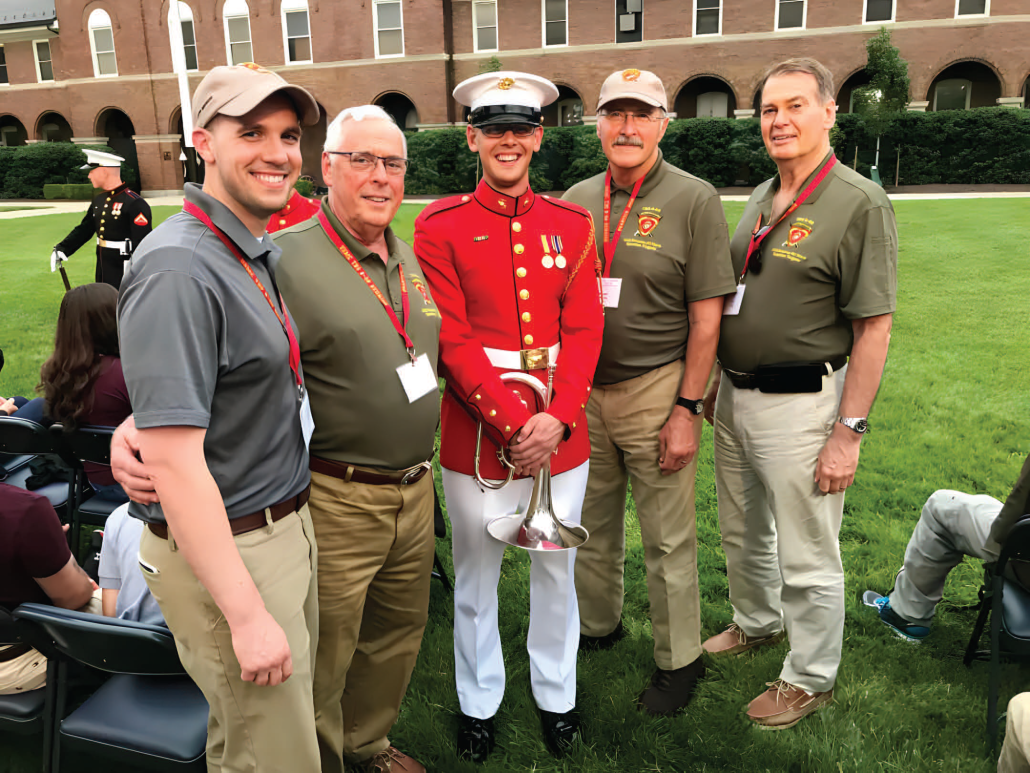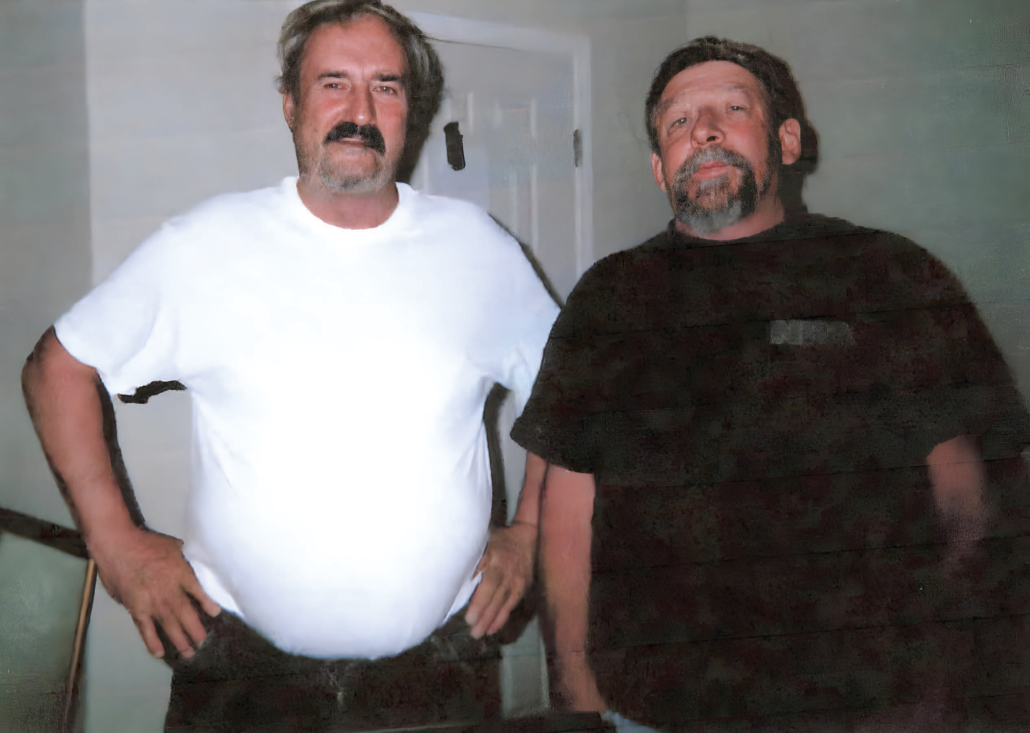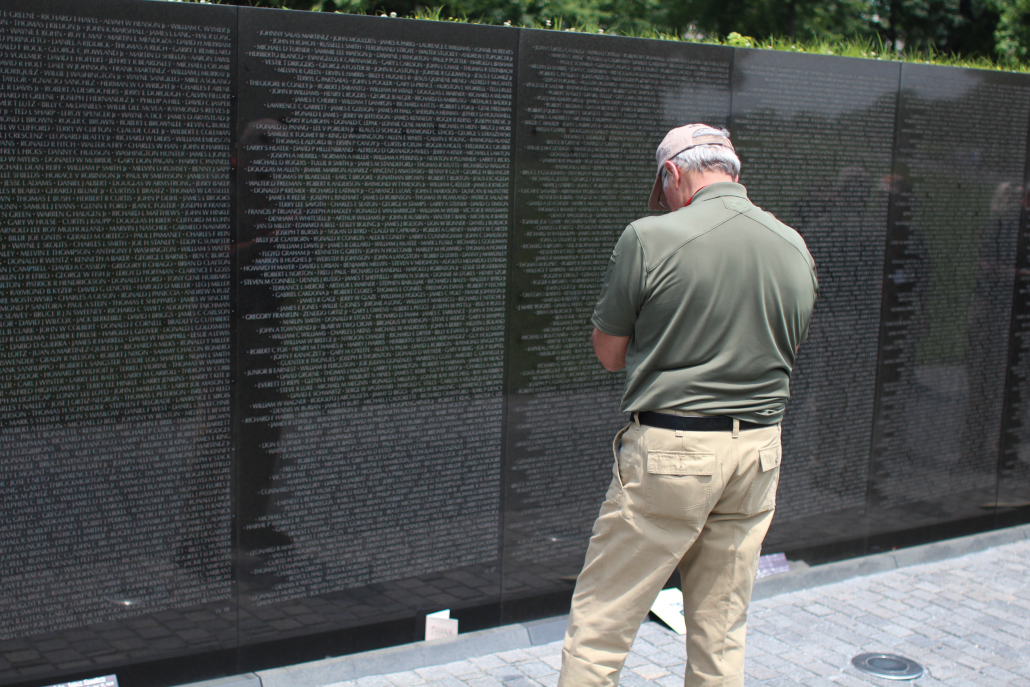
90 Days a Grunt: A Short-Term Assignment to the Infantry, the Jungle and the Battle at Mutter’s Ridge
By: Kyle WattsPosted on May 15, 2023
In late September 1968, Bob Skeels stepped off a plane at Quang Tri Combat Base. The aircraft delivered three of Bob’s friends to Vietnam alongside him. The four men shared much in common. All were young, newly minted second lieutenants. All had recently graduated from training as 1802 tank officers. For Bob’s part, a surge of personal patriotism drove him to the Corps after college despite growing disillusion with the war at home. Vietnam was the war of his generation, and he wanted to play a part, just as his parents had in World War II. He pursued a career as a tanker. He preferred the idea of a heavily armored carriage with massive firepower carrying him to battle in relative safety.
The four lieutenants hauled their gear off the plane and entered a building to check in. Their crisp new uniforms and beaming golden bars stood out among the faded, drab background of the base. A gruff and weathered lieutenant colonel summoned them into his office. They lined up and snapped to attention. The officer got straight to the point.
“Sorry to tell you this, gents, but a curveball is coming your way. We are short on infantry platoon commanders, so for your first 90 days in country, you will be assigned to a grunt battalion. Welcome to the infantry.”
Bob swallowed hard stifling a wave of emotion. Scuttlebutt had reached the states that 1968 was the war’s worst year yet to be a new Marine infantry officer. Grunt lieutenants held a low chance of survival. Bob gathered his strength to remain upright and breathed a hardy, “Yes, Sir.”
“We couldn’t make a noise because we could tell the guy was a hard ass and he’d bust you right there on the spot,” Bob recalled today. “I was in fear, but your eyes can’t show anything, your words can’t show anything. What are you supposed to do? You just obey your orders.”
The four tankers left the lieutenant colonel’s office and parted ways. Bob received his orders to “Echo” Company, 2nd Battalion, 4th Marines and his spirits faded further when he learned the officer who had informed them of the temporary assignment would later be his battalion commander. The man seemed even less pleased with the situation than the tankers had been.
Bob collected the weapons, clothing, and 782 gear issued to a new grunt bound for the bush. He loaded onto a chopper heading west for Vandegrift Combat Base. The sun disappeared behind distant mountain tops as the helicopter set down. Someone directed Bob to a tent on the perimeter to spend the night. Another chopper would deliver him to his unit at Khe Sanh the following morning. Several NCOs invited Bob to join their card game and dealt him in. In the twilight, ridges and valleys extended for miles, nestled beneath a perfectly painted sky. Could a place like this really be a war zone?
Bob stripped down to his skivvies as they played. The oppressive heat seemed the only blemish on the otherwise beautiful country. An artillery round suddenly exploded 150 meters away. Bob scanned the table, gauging the reactions of other Marines. A second round hit 100 meters away. Everyone ran outside. A third round came 75 meters away. Someone screamed, “Get in the goddamn trench! We’re on the gun target line!”
Six Marines dove headlong into a water-filled hole next to the tent. Wearing nothing but his skivvies and hard-rimmed glasses, Bob plunged in after them. He sank to the bottom and struggled not to drown as the tangled mass of bodies all took cover. Someone knocked Bob’s glasses off and they disappeared into the muck.
When the incoming fire finally stopped, the Marines clawed their way out of the trench. The tent which housed the card game hung in shreds. Naked, soaked, and blind without his glasses, Bob never felt so vulnerable.
“I was so embarrassed. I learned to never go to bed without being fully dressed. From that point on, I always went to bed with my boots on and rifle on my chest. I found out later the incoming rounds were misfires from friendly 105 mm howitzers nearby. That was my first night in country. What a hell of a night.”
In the morning, Bob boarded another helicopter and flew farther west. The chopper descended into thick fog, completely socking in the jungle beneath him. The helicopter crew chief shouted back as Bob peered out the door.
“OK, Lieutenant, you’re here!”
Bob stared, completely befuddled. A white sheet hung in the air, veiling what seemed the entire world outside of the chopper. “What?”
“You’re here, Hill 881 North.”
“Are we on the ground?”
“No, but we’re only about 10 feet off. You’ll be alright, go ahead and jump.”
Bob cursed the Marine, the fog, and the hill somewhere below as he slid into his pack. With over 125 pounds of gear on his body, he jumped. The helicopter noise muffled any cracking sounds from his body as he collided with the ground. He lay on his back catching his breath as the helicopter departed. A driving rain began, pelting his face as he stared toward the sky. Men snickered in the distance. Bob hurt too much to care. A Marine finally approached.
“You Lieutenant Skeels?”
“Yeah,” Bob muttered. “My back hurts like hell.”
“Jesus, sir. We gotta get you out of that dead cockroach position.” He helped Bob roll over and get on his feet. “You’re 3rd Platoon Commander. They’re all waiting for you over there on the east side of the hill.”
Bob located his Marines, collected under several ponchos tied together. The platoon sergeant stood as Bob entered their shelter. “Welcome, Lieutenant.”
“Thanks. It’s good to finally be here. I’ve had a couple rough days.” The Marines smirked and shot glances around the group.
“Well, you’re about to have tougher days. What do you want to do now?”
Bob gathered the platoon sergeant, squad leaders, and anyone who was on their second tour. The Marines arrived as Bob decided what to say. One of the grunts beat him to the punch.
“Lieutenant Skeels, before you get started, can I ask a question?” Bob braced for impact.
“Sure.”
“How the hell did we wind up with a green tanker for a damn infantry officer?”
“You guys gotta give me a break!” Bob replied. “Sure, I am green, but looking at your brand new uniforms, some of you guys are just as new as I am. I’m here to learn from you guys that have been here the longest, and we’re all going to be in this together.”
A silence followed Bob’s retort as the Marines traded looks and considered their new leader. Finally, the Marine who offered the challenge let on a smile.
“OK, Lieutenant. We’ll let you have a chance. But no orders for crazy frontal charges!”
Echo Company departed Khe Sanh shortly after Bob arrived and headed north toward the Demilitarized Zone (DMZ). Bob’s platoon separated from the rest of Echo Co and spent the next two months patrolling the jungle. The unit operated autonomously, rarely seeing other Marines in the bush. The shortage of true infantry officers became evident. Bob’s company cycled through multiple commanding officers while he patrolled the Vietnamese mountains.
Bob learned quickly the hardships of a grunt in war. He and his Marines engaged daily in battle with the jungle. Rats three times the size of those stateside moved in from every corner of the country to follow Marines and feast on garbage left behind. Bob cinched his poncho high around his face every night, lest he find a rat perched on his chin in the morning looking for crumbs. Often, this happened anyway. Just like the rats, he constantly scrounged for food. Inclement weather often prohibited resupply and the isolated Marines survived many days on one C-ration.
Heat and humidity left the Marines constantly wet. Everyone developed jungle rot. Even as his knuckles seeped and split open, Bob called in medevacs for Marines with cases far worse than his own. Leeches dominated the environment, ready to suck out any amount of life the Marines had left. Bob developed his morning routine which included a full-body sweep and removal of leeches with a flame or salt, sometimes up to 30 leeches at a time.
“It was like an extended camping trip with occasional periods of sheer fright,” reflected Patrick “Mac” McWilliams, one of the grunts in Bob’s platoon. “I tell people most of my time in Vietnam was spent battling the elements. We just lived out there, digging a hole every night.”
“Everything we did, we did for our brother in the hole with us,” remembered Bruce Brinke, another Marine serving under Bob. “We didn’t have any grand ulterior motives, we just put one foot in front of the other and tried not to think of the whole 13 months. When you’re a lance corporal, a ground pounder, you just do what the squad leader tells you, and he just does what the platoon commander tells him. You don’t have much of a grand view.”
One of Bob’s squad leaders, Cpl Alvin “Twink” Winchell, struggled finding words to describe his time in the jungle as he recounted the memories recently.
“My daughter is a nurse with experience helping veterans,” Winchell said. “She helped me explain how I survived the jungle. She said, ‘Soldiers are trained to go into survival mode mentally and physically. Some did it well, some caved. The jungle was a site like none other could imagine. Those of you that perfected survival mode attempted to come home. Most of you who are still alive are still in constant survival mode.’ This is how I am to this day.”
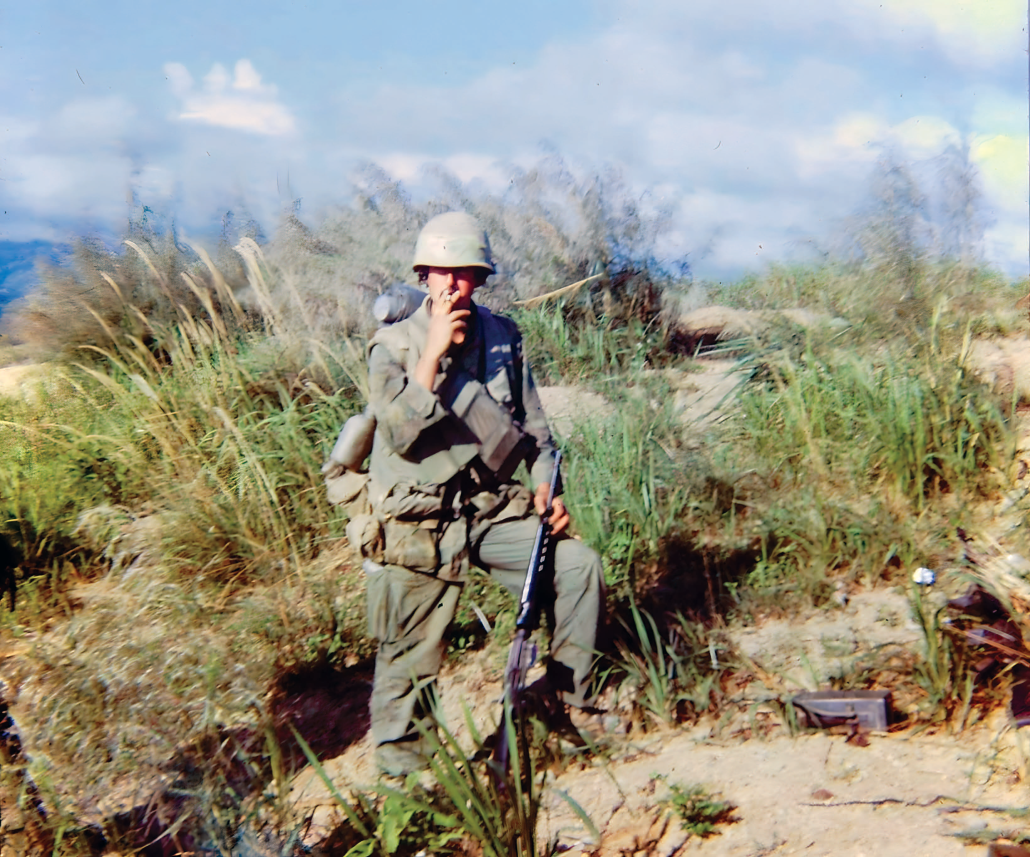
When his platoon was not patrolling, Bob received orders to help establish new fire bases on remote jungle hill tops. At the future sites of Fire Support Bases (FSB) Alpine and Argonne, the Marines dug holes and set up security as helicopters lifted in heavy equipment to remove the trees. Bob endured the drain of sleep deprivation on these long nights while checking his positions.
One night, as Bob watched through a Starlight scope, he picked up something unknown moving around the perimeter. He investigated in the morning and discovered fresh tiger tracks. From then on, Bob performed his nightly rounds with a pistol in one hand and a 12-gauge shotgun in the other. He had always worried about getting shot in the dark by a probing enemy soldier or even a trigger-happy Marine. Now, the thought of a 400-pound cat ripping him to shreds boosted his anxiety to a whole new level.
In November, the platoon humped all day to the top of another hill where the next FSB would become reality. Soon to be known as FSB Russell, the hilltop proved critical to supporting grunt operations in the surrounding area.
Nights at Russell brought sightings of a species other than tigers. Listening posts (LPs) set 150 meters out from the perimeter radioed in constantly reporting enemy movement. Starlight scopes revealed human forms moving slowly through the jungle, probing the new defenses and mapping out the perimeter. Bob requested permission to engage the targets but was denied so as to not give away the defensive positions. He walked the lines and out to the LPs each night on high alert, shotgun and pistol in hand. With all the enemy sightings, sooner or later, contact felt imminent.
Before dawn on Dec. 7, 1968, word came down of an upcoming operation. For the first time since Bob arrived with 2/4, the entire battalion would take part in an assault. Several other units would also join in the massive cordon and search. The objective was a well-known and well-fought over terrain feature immediately south of the DMZ known as Mutter’s Ridge. Somehow, out of six participating battalions and their subordinate units, Bob’s platoon drew the task of pushing across Mutter’s Ridge on point for the entire operation.
“You’re gonna get your platoon a lot of ribbons on this one,” the battalion sergeant major told him. “That place is a hell hole. This happened in 1966. It happened in 1967. Now, it’s our turn. We gotta go in there and clean them out.”
Bob tried not to dwell on the stupidity of an annual operation where Marines died to simply drive the NVA back across the DMZ. Less than eight hours after receiving the initial frag order, the Marines loaded into choppers and flew to their insertion LZs.
The main objective, designated “Objective Bravo,” occupied the highest hill of Mutter’s Ridge. The rushed timeline planned for Bob’s platoon to secure Objective Bravo the same day the entire operation was conceived. The sun sank lower and lower into the western sky as 3rd platoon moved across Mutter’s Ridge. When Objective Bravo finally came into view, Bob saw not one, but three distinct hill tops rising into the twilight. Storming a single enemy-occupied hill would be difficult. Tackling three such hills seemed nearly impossible—in the dark, surely suicidal. Bob called his platoon sergeant over.
“How the hell are we supposed to take that? It’s got three tops! It would be crazy to try to take that in the dark.”
The staff sergeant stared blankly back. “It’s your call, Lieutenant.”
Bob considered Objective Bravo in silence. Finally, he called up his radioman and raised the company commander. “Echo Six, this is Echo Three. Request permission to set up at our present location for the night and attack the objective in the morning, over.”
An unfamiliar voice replied. “Echo Three, the CO’s not gonna like that. He’s gonna be pissed you’re screwing up his operation.”
Bob struggled to place the voice. Could it really be another new company commander? Whoever it was, Bob didn’t care. “Just ask him.”
An excruciating pause followed. Finally, the voice returned with orders.
“Echo Three, patrol over to the base of Objective Bravo, then return and hold your position for the night. Resume the advance tomorrow morning at 0630. Out.”
Bob set down the radio and breathed a sigh of relief. He passed the word to his squads. They found nothing on their final sweep of the day to the base of Objective Bravo, then returned and dug in. Bob passed the night walking the lines.
Dawn broke over the jungle. 3rd platoon roused early and geared up for the coming assault. Shortly before the appointed hour, Bob’s radio came to life.
“Echo Three, Echo Three, this is Six. Operational change. Foxtrot Company has been tasked with securing Objective Bravo. You will proceed east along the ridge and act as a blocking force for their assault.”
Bob set the radio down. The Marines around him waited for his word. He wrestled with the sudden change in orders. Why now? He knew trying to understand was futile. Their job as point for the operation was now someone else’s job, their fate someone else’s fate. Third platoon’s job now was to simply execute the new orders.
They marched out down a ridge line. The three peaks of Objective Bravo jutted out of the sky to the north with the rest of Mutter’s Ridge extending west out of view. It took most of the day to reach the end of the ridge where it dropped off and opened into a valley leading north to the base of Mutter’s Ridge. In the late afternoon, the point man suddenly called a halt. Bob moved forward. Ten pots of boiling rice sat abandoned on the jungle floor, still simmering. Bamboo tables and chairs surrounded them. Marines crouched on high alert.
“It was a pretty big outpost we encountered,” Bob recalled. “You see something like that, and your sphincter muscle starts to fire. You know you’re going to have contact very soon.”
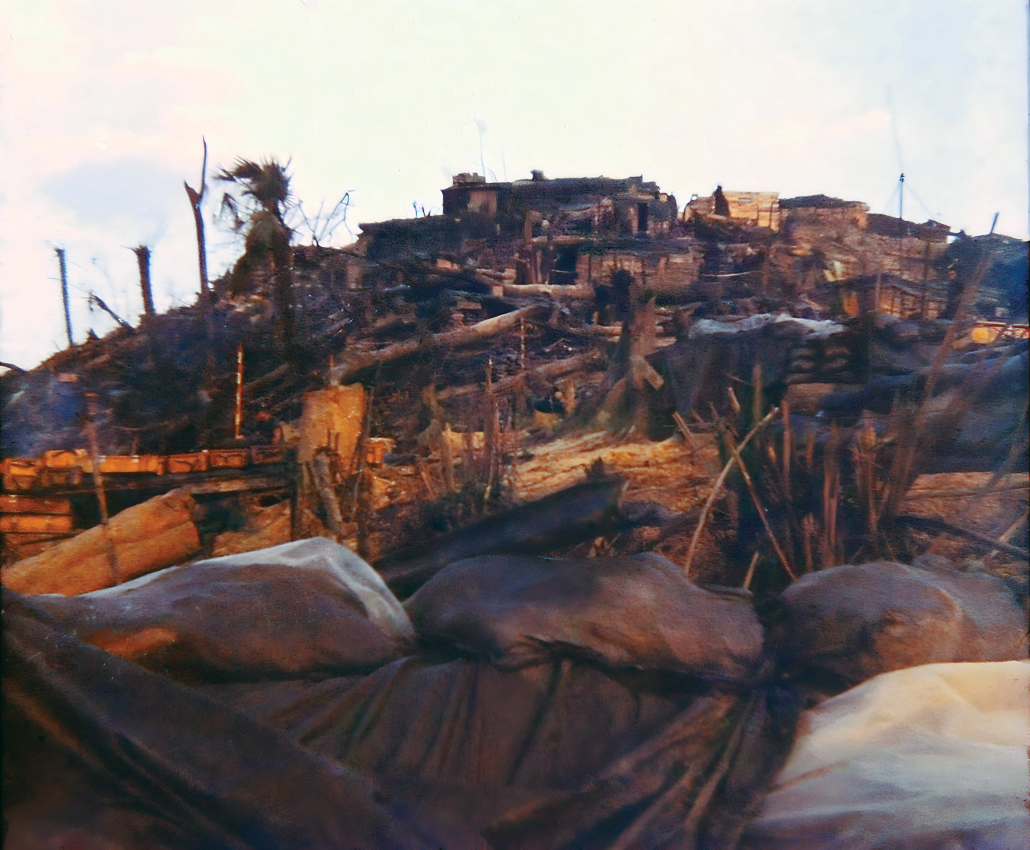
Bob called over Cpl Alvin Winchell’s squad. He gave Winchell five map checkpoints in the vicinity to investigate. The six-man squad set out down a hill towards the first checkpoint on the valley floor. The rest of 3rd platoon started digging in for the night.
Patrick McWilliams took point for Winchell’s squad. The 20-year-old lance corporal volunteered for the spot, even though he had never run point before and had not seen combat. They neared the first checkpoint in a thicket of bamboo and elephant grass. McWilliams crested an embankment running across the valley. The embankment revealed itself to be the edge of a trench line. In the trench directly below McWilliams, a NVA soldier sat eating. Before McWilliams could shoot, the enemy soldier bolted and fired wildly back towards him.
McWilliams considered jumping into the trench after him, then a bullet tore through the hand guard of his rifle, grazing his finger. Machine-gun fire peppered the embankment, creating a dust cloud behind McWilliams as he sprinted back toward the rest of his squad.
He reappeared through the elephant grass as a roar of automatic fire rose above the embankment. Before Winchell could learn what McWilliams had seen, AK-47 fire ripped apart the foliage around him. A sudden sting in his leg dropped Winchell to the ground. He grabbed the radio and found Bob already waiting on the other end.
“What’s going on down there?!”
“We walked into something, it’s a hornet’s nest!”
Winchell switched frequencies to talk with the company’s 60 mm mortars. He directed their fire into the trench and surrounding area. The NVA maintained such a rate of fire that he could not even raise his head to watch the rounds impact. He estimated their range from the sound of the explosions and swept rounds across the valley.
The machine-gunner in Winchell’s squad opened up with his M60. Another Marine shouted, “They’re flanking us!” Meanwhile, the NVA raked the Marines’ position as they advanced. Winchell called the mortars in closer. Grenades suddenly landed between the Marines. Winchell grabbed his own grenades and threw them back. The back-and-forth went on until a grenade finally found its mark. Winchell’s radioman screamed in pain as the explosion blew apart his knee. Winchell moved the radioman farther back, then called the mortars even closer.
“We called it, ‘hugging the belt,’ where they’d try to come in so close that you were afraid to call in mortars on your own men,” Winchell remembered. “Well, I kept bringing them in.”
When the battle opened less than 200 meters down the hill, Bob ordered his remaining two squads to saddle up. The new company commander radioed again demanding updates.
“We’ve made contact with the enemy down in the valley,” Bob told him.
“Well, get someone down there to sweep,” the voice replied.
“Already did. That’s who is getting hit.”
“Hold on, I’m coming up there.”
As the rest of 3rd platoon prepared to move, a second lieutenant appeared. Bob determined this must be his new company commander. Automatic fire raked the ridge line as Bob explained their current situation. Leaves and limbs rained down from the branches above their heads.
“Get your ass down there and get those guys!” The lieutenant ordered.
Bob bit his tongue. No point in getting into it with a senior lieutenant right now.
“On my way.”
The platoon’s remaining two squads advanced off the ridge toward the gunfight. They discovered three enemy bunkers built into a hill on their right flank as they worked their way down toward their fellow Marines. Bob realized they could not risk leaving them occupied by the enemy to chew his platoon apart as they moved toward his trapped squad. He adjusted course for the bunkers. Enemy fire slowed their progress as the platoon strung out through the jungle. The point squad finally reached the bunkers and found them unoccupied. Bob sent a runner back through the line to get a count and let everyone know they would resume course back towards Winchell. The runner returned with unexpected news.
“Lieutenant Skeels, we’ve got two missing.”
“What? What do you mean, missing?”
“They went missing some time during on our movement. No one back there saw them.”
Bob fought to keep his bearing as his heart sank to the pit of his stomach. His radioman approached. Fixed wing aircraft held station overhead, ready to pummel the valley floor. Bob still hadn’t located Winchell’s squad. Now, with two Marines missing somewhere in the area, he couldn’t risk jets dropping their bombs. He called the aircraft off and formed up his remaining Marines to move out toward Winchell and search for the missing men.
Bob witnessed at least 20 uniformed enemy soldiers 400 meters away, safely perched on a hilltop near Objective Bravo and firing into the valley. They obviously felt impervious to the battle raging as they added their fire into it.
More Marines fell wounded as the platoon advanced. The man next to Bob was shot in the chest. Bob rolled him over and removed his shirt, revealing a large exit wound. He moved the Marine back uphill toward the abandoned bunkers where a casualty collection point formed.
A small observation plane soared in over at treetop level. The pilot came up on 3rd platoon’s radio and advised he spotted a Marine lying motionless on the jungle floor, shot dead center in the chest. Bob called for volunteers.
“I need two volunteers to come down there with me to look for our MIA.”
One of the remaining squad leaders chimed in. “Lieutenant, you can’t go, you’re the lieutenant!” Without hesitation, two other Marines spoke up. “We’ll go, Lieutenant.”
LCpl John Higgins and PFC Paul Dains stepped forward. Bob didn’t know what to do. Two Marines were missing, at least one probably dead. One squad was trapped in a fight for their lives. Aircraft and artillery waited his word to obliterate the valley. Multiple casualties required evacuation. Darkness threatened to consume Mutter’s Ridge at any minute. The senior company commander demanded answers.
“All right. Look, just get down there. Take a look and get back here. You’ve got five minutes. Just take a look and get back here!”
Back in the valley, Winchell continued calling mortars for what seemed like an eternity as the rest of 3rd platoon tried to reach him. He inched the explosions closer and closer. Mortars rained down merely 20 meters away. Shrapnel cut down trees and vegetation around the Marines. A piece of searing metal tore into Winchell’s knee. When other Marines also suffered friendly shrapnel wounds, Winchell ceased the fire. The NVA retreated from the area. The mortar barrage saved them.
He rolled over and rose to his good knee. Suddenly, through the trees, he saw LCpl Higgins walking alone 30 meters away in the direction where the NVA fire had originated and where they had retreated. Winchell caught his attention and frantically pointed toward the enemy positions. Higgins acknowledged him and proceeded on, disappearing back into the jungle.
Back with the rest of 3rd platoon, Bob checked his watch. Five minutes came and went. Five more minutes passed. As Bob debated what to do, movement down the hill caught his eye. A Marine staggered through the trees. Not Higgins or Dains, but one of the Marines who went missing earlier. He appeared badly wounded, purple in color, and missing his helmet and rifle. The Marine stumbled and fell. Bob rushed down the embankment and picked him up. He struggled back to the perimeter with the Marine over his shoulders. He ordered his radioman to call for a medevac as he lay the Marine with the other casualties.
Dusk settled in and it started to rain. The wounded had to get out now. The only chopper available or willing to come was an Army Chinook. Bob praised and thanked the pilot as he helped load nine Marines on board the helicopter.
More good news arrived shortly after the chopper departed. Winchell’s squad made it safely back up the ridge and linked up with the other elements of Echo Company. All six Marines were wounded, but all six made it back alive. Winchell and his radioman were evacuated due to their wounds. The word helped Bob remain positive. Higgins and Dains had to be out there somewhere, waiting out the darkness, waiting out the NVA.
The sun rose quietly over Mutter’s Ridge on Dec. 9. Bob moved out with his diminished platoon at first light. Echo’s 2nd platoon joined them in searching for their missing Marines. The enemy had completely abandoned the valley, retreating to their stronghold on Objective Bravo. Bob’s platoon located the Marine spotted from the air the day prior. PFC Charles Hall Jr., was no longer missing, but was now the platoon’s first confirmed KIA.
Nearby Hall lay the lifeless body of PFC Dains, similarly cut down by a sniper’s bullet. They proceeded on toward the trench where Winchell’s squad made first contact. A later count revealed 52 enemy bunkers constructed beyond the trench line. Lying next to one of these bunkers, the Marines found the body of LCpl Higgins.
Echo Company spent the rest of the operation blocking the eastern flank of Mutter’s Ridge as Foxtrot Company assaulted Objective Bravo. On Dec. 11, 1stLt Steven Broderick led the assault across the three-topped hill, his platoon in the position Bob’s was intended for before the operational change. Broderick died in the battle, moving among his squads and directing them under fire. He posthumously received the Silver Star.
Twelve other Marines were killed and 31 wounded while taking the objective, later renamed “Foxtrot Ridge.” Over 170 enemy bunkers were counted there, stuffed with ammo, weapons, and supplies. In all, less than 60 dead NVA were left on Mutter’s Ridge to be counted. Commanders deemed the operation a sweeping success and a prime fighting example of the Corps’ mighty air/ground team.
Bob remained with 3rd platoon through the end of December. He wrote up LCpl Higgins for a posthumous Silver Star. The citation recognized Higgins’ bravery under fire throughout the day of Dec. 8, his initiative in volunteering to seek out the missing Marines, and courage for continuing on alone toward Winchell’s squad, where he died trying to help them.
Bob’s 90 days as a grunt ended as the new year rolled around. He left 2/4 for Bravo Co, 3rd Tank Battalion on Jan. 3, 1969.
Having adopted the mold of an infantry platoon commander, Bob struggled at first remembering how to lead a platoon of five tanks. Near the end of February, Bob and his tanks stood guard over a bridge along Route 1 near the DMZ. One evening, radio traffic trickled in about a fire base near Mutter’s Ridge that had been overrun. Bob’s ears perked up when he heard the name FSB Russell. Having spent several weeks carving Russell out of the jungle, Bob could never forget the place. His platoon occupied Russell, alongside numerous others, when Bob left them. On the night of Feb. 25, over 200 NVA sappers broke through the perimeter and overran the outpost. In the ensuing terror, 26 Marines were killed and 77 wounded.
Bob begged his new CO to let him go to Russell and check on his old platoon but was refused. Winchell, McWilliams, Brinke and all the others would have been there. Bob did not know if any of them survived.
Bob supported infantry operations along the DMZ for the remainder of his tour. He worked with numerous grunt battalions moving in and out of the bush. Every time he went out, Bob loaded his tank with extra C-rations and passed them out to the grunts. He knew they were always hungry. When grunts were wounded in battle, Bob sometimes evacuated them, riding on the fenders of his tank. He knew helicopter evacuation was not always possible. Every time he went out for two or three days, he thought of the infantry enduring weeks at a time in the jungle.
Bob, like so many other Vietnam veterans, spent the next 40 years trying to forget the war. In the wake of the terrorist attacks on Sept. 11, 2001, Bob found a patriotic spirit that inspired him to join the Veterans of Foreign Wars. He formed new bonds with veterans who shared experiences similar to his own. They inspired strength to dig deeper into his past. Bob visited the Vietnam Veterans Memorial in Washington, D.C. He found John Higgins, Paul Dains, and Charles Hall on panel 37W of the wall. He searched each line for other names he’d recognize. He bowed his head in thankfulness, discovering that no more of the Marines he had ordered evacuated on Dec. 8 had died of their wounds.
Bob located a website published by the LZ Russell Association. Here, he finally connected once again with Winchell, McWilliams, Brinke, and other Marines from 2/4 who survived Mutter’s Ridge and the nightmare at LZ Russell. Winchell received the Bronze Star with “V” for heroism on the night Russell was overrun. Brinke was wounded and received the Purple Heart. Bob learned that 2ndLt William Hunt, the lieutenant who replaced him in 3rd platoon, was killed there.
The Marines asked Bob to fill them in on the operation at Mutter’s Ridge and what had happened leading up to their making first contact of the operation. This proved yet another plight of the grunts, to obey orders without question, while not always understanding what they were doing, where they were going, and why they were there. Bob did his best to explain the broader picture and took the opportunity to tell them what they had meant to him all his life. “I came away from those 90 days with the belief that the grunts deserve everything,” Bob reflected today. “They deserve all the support that anyone else can give them. Dec. 8, ’68 was a terrible day in my tour. My worst day. I only spent 90 days as a grunt. I don’t know how they endured that jungle for 13 months. It was truly the honor of my lifetime to serve alongside those Marines.








